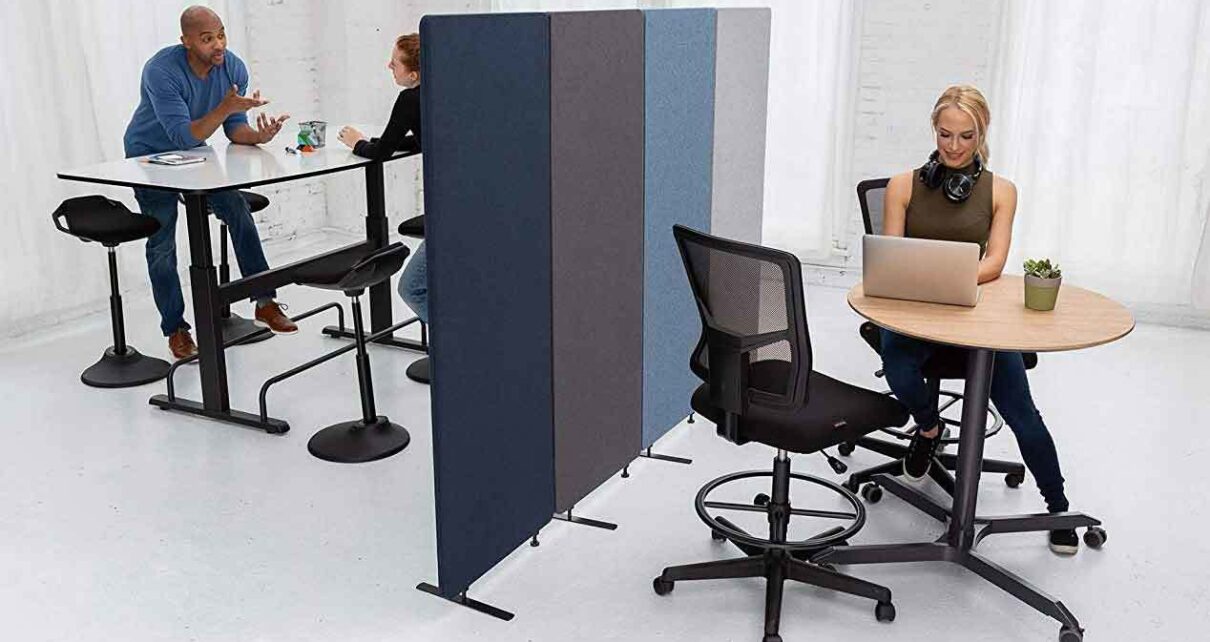Does the sound of co-workers chatting and typing on their keyboards constantly distract you while working in your office space? If so, soundproofing your office could be the ideal solution. Whether you’re a freelancer working from home, or a business owner looking to keep your office quiet and comfortable for staff, the following guide to soundproofing provides helpful tips to reduce noise levels and maintain productivity. Read on to learn more about soundproofing an office space.
Evaluate the Noise Source
When sound proofing an office space, it is important to evaluate the source of the noise. This can involve pinpointing the exact source and the form of noise – whether it be from the exterior environment, an echo from inside the office, or any other noise source. This evaluation process can help discern what solutions may work best.
The first step is to identify the type of noise and pinpoint where it is coming from; is it coming from adjacent rooms, or is it noise coming from outside the office? The type of noise will help determine the type of sound proofing needed. For example, exterior noise could be dampened with a soundproof window. On the other hand, noise from the interior of the office may require acoustic panels or soundproofing materials within the space furniture stores oakville.
Once the type of noise is known, then it is important to evaluate the level of noise that is occurring. This may require noise tracking and measuring tools that can properly measure the noise levels or sound pressure levels. This way, it is easier to determine the amount of noise reduction needed and the type of sound proofing materials that will be most effective in solving the noise issue. Additionally, this noise evaluation can help to identify any possible underlying issues and solutions that may be available.
Install acoustic panels
Installing acoustic panels is one of the best ways to sound proof an office space. Acoustic panels dampen sound that is created in the office, helping to reduce noise levels and improve sound quality. Acoustic panels come in a variety of shapes and sizes, and they are easy to install and maintain. If you are considering sound proofing your office, installing acoustic panels could be a great way to start.
Soundproof doors and windows
When soundproofing an office space, one of the most effective ways to reduce noise is by soundproofing the doors and windows. Placing weatherstripping around the door frame is one of the most cost-effective ways to reduce sound from entering and exiting the office space. Adhesive-backed foam strips can also be applied around the door frame to provide additional soundproofing. Installing door sweeps are also a great way to reduce additional sound from entering or exiting the office space. Additionally, soundproof curtains can be hung on the windows to further block out any outside noise. Finally, investing in double or triple-glazed windows will provide additional soundproofing and increase the overall soundproofing of the office space.
Choose furniture made with sound-absorbing materials
When sound proofing an office space, one should consider the furniture as well. Selecting furniture made with sound-absorbing materials, such as fabric-covered chairs and acoustic foam, can help reduce the amount of noise reverberating through the room. Additionally, rigid materials like wood, metal, and concrete should be avoided if possible, as they often reflect sound waves, making them more noticeable. Lastly, the size and shape of each piece of furniture should be considered; furniture with sharp surfaces and edges will cause sound waves to bounce off of them, increasing the overall noise level present in the office.
Purchase wall coverings that reduce echo and reverberation
When sound proofing an office space, it is important to keep in mind how sound travels within the room. One way to reduce echo and reverberation is to purchase wall coverings that are designed to absorb sound waves and make the space more acoustically sound. Selecting wall coverings that are designed specifically for sound proofing will help cancel out noise and create a quieter and more comfortable environment. Make sure to research different types of sound proofing materials and speak to an expert before making any decisions.
Conclusion
Installing acoustic panels, soundproofing doors and windows, and purchasing wall coverings that reduce echo and reverberation all play a role in creating a soundproof office space. With these tips, you can easily create a peaceful, professional workspace that provides a healthy and productive environment for your employees.




